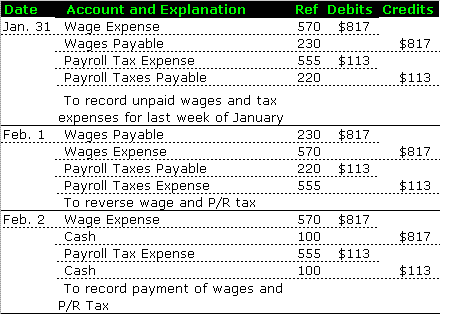
Accounting is everything from your company’s financial history and health to performance. But you don’t need to be a magician with your finances to run a successful business. Understanding the basics of accounting will keep you on the path to success. Income is often the category that business owners underutilize the most. Some of the most common types of revenue or income accounts include sales, rental, and dividend income.
Bookkeeping Vs. Accounting for Trucking
Understanding best practices in business accounting is a great way to get ahead. It also provides an opportunity to identify risks and weaknesses to determine any areas that need improvement. In other words, it helps you cover your financial obligations and boosts your company’s growth. Many people in the transportation industry choose to manage their accounting in spreadsheets. While these do the job, they are prone to errors – the good news is technology can help. Current liabilities are any outstanding payments that are due within the year, while non-current or long-term liabilities are payments due more than a year from the date of the report.

Accounting for trucking business is an important part of maintaining the financial health of the company. These scenarios demonstrate how transactions flow through the chart of accounts using debits and credits to record financial activity. The starting point for trucker accounting 101 is to understand how much money is coming into and going out of your trucking business.
Use the most up-to-date accounting software for your transport company
- However, a profit and loss (P&L) statement overviews revenues and expenses.
- Consider creating separate line items in your chart of accounts for different types of income.
- It takes more work, but it also documents your profitability more accurately.
- Identifying which locations, events, items, or services bring in the most cash flow is key to better financial management.
- This will also give you variable cost as a percent of revenue if you subtract the contribution margin from 100.
Truckers have often been referred to as the backbone of the American economy, and just as the economy 5 payment reminder templates to ask for overdue payments needs a strong backbone to run smoothly, so does a QuickBooks file or any other accounting software. As a trucking business owner, you should keep records of all your expenses and the documents that support them, such as receipts and account statements. You should have proof of each expense’s amount, date, location, and business purpose.In addition, hold onto all documents you need to comply with Department of Transportation and IRS requirements. For example, that includes data from your ELD, invoices, bills of lading, payroll statements, and tax payment receipts.
Moving things up and down the country (or across countries) is a big job. We provide third-party links as a convenience and for informational purposes only. Intuit does not endorse or approve these products and services, or the opinions of these corporations or organizations or individuals.
Kevin’s Trucking Company: Balance Sheet, January 1, 2020
As a result, many truck drivers handle discontinued operations definition a significant portion of their bookkeeping without much assistance. For example, it’s usually best for a driver to keep track of their miles, fuel purchases, and meal expenses while on the road. Here is a chart of accounts for trucking list that you can use while preparing your own ledgers.
In addition to keeping records of your expenses, you should have documents that prove their validity, such as receipts, trip logs, and account statements. The accrual basis of accounting requires that you recognize revenues when you earn them and expenses when you incur them, regardless of when funds enter or leave your accounts. It takes more work, but it also documents your profitability more accurately. The cash basis involves recognizing revenues when you receive payments and deducting expenses when you pay them. Because it’s easy to implement, many small businesses favor this method. As a result, you probably shouldn’t try to manage your trucking business’s accounting function without help.
See if you’re eligible for business financing
No matter the size of your fleet, it’s vital to understand and apply the basic accounting concepts to help your business thrive. Freight and haulage company owners face several challenges every day — and accounting is a big one. For instance, if you rent, the money moves from your cash account to bookkeeping for llc the rent expense account. Expense accounts allow you to keep track of money that you no longer have. Nick Gallo is a Certified Public Accountant and content marketer for the financial industry.

